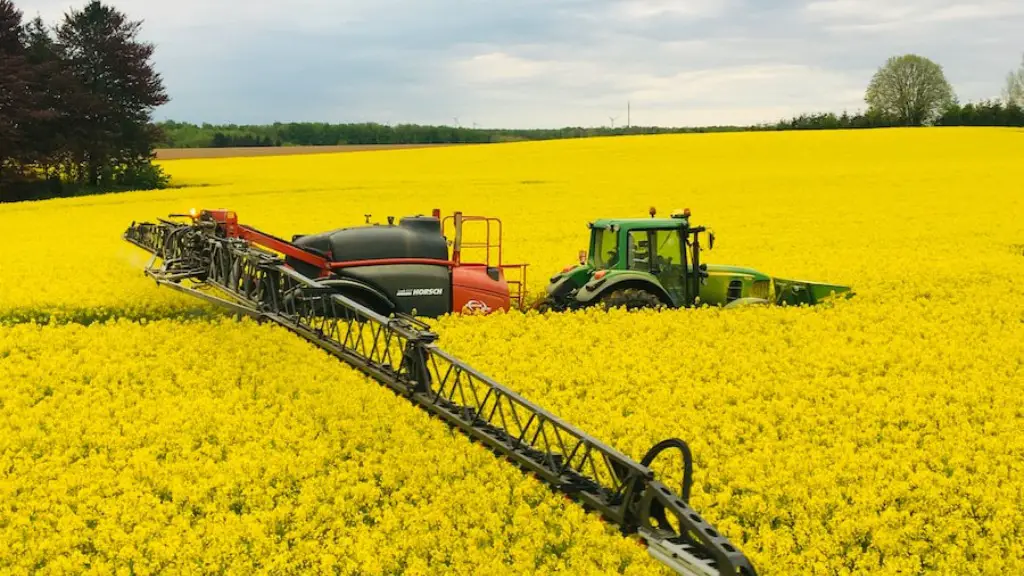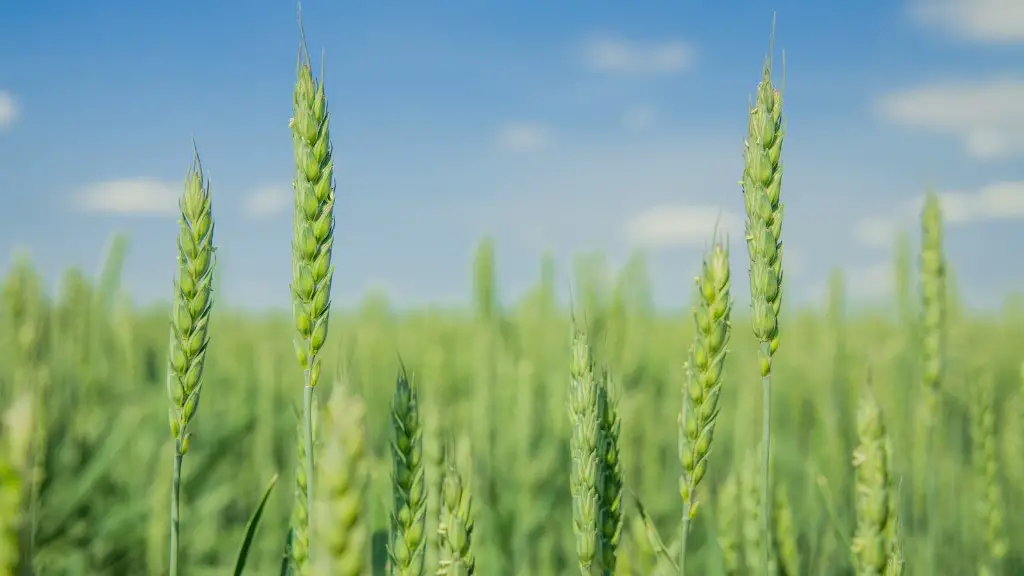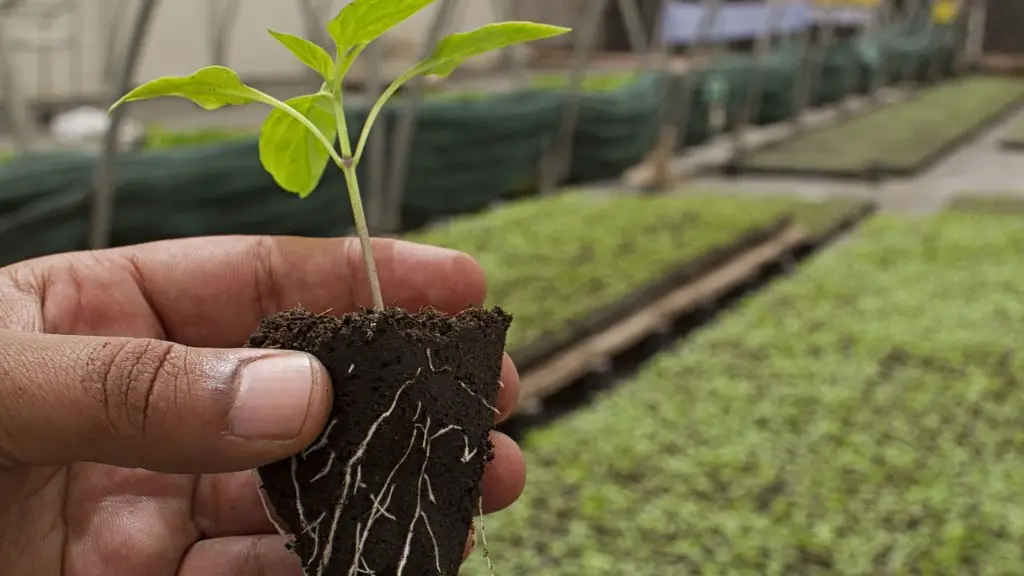Agriculture degrees provide students with an in-depth knowledge of how to cultivate crops and manage animals as well as how to maintain and increase soil fertility. With an agriculture degree, graduates can pursue a variety of job opportunities in the sector. Here are some of the ways you can use an agriculture degree:
One of the most popular ways to utilize an agriculture degree is to become a farmer. As a farmer you will be responsible for cultivating crops, managing animals, and exploring ways to maximize land fruitful yield. You will be able to use your knowledge of soil fertility increase the quality and quantity of crops. To become a successful farmer, you must have a working knowledge of crop genetics, weather forecasting, and livestock management.
An alternate career path with an agriculture degree is to become an agricultural technician. As an agricultural technician, you would help farmers by developing plans for agricultural production, providing advice on pest and fertilization control, and assessing soil. In addition, agricultural technicians analyze data to find ways to improve crop yield. The job requires a good understanding of plant nutrition, plant disease, soil pH control, and other topics related to agriculture.
Those with an agriculture degree can also find work as an agricultural advisor. Agricultural advisors provide farmers and landowners with advice and information about land management, soil fertility, and the financial sustainability of farms. This can include advice about crop selection, gardening, land management, and more. Agricultural advisors need to be hardworking, excellent communicators, and passionate about sharing their knowledge.
Those who wish to use their agriculture degree in the public sector can do so by becoming an agricultural engineer. Agricultural engineers use engineering technologies to develop products and equipment to improve agricultural production, increase the efficiency of how crops are produced, and create solutions to ensure food security. This career requires a deep knowledge and understanding of agriculture, physics, mechanics, computer science, and biology.
Careers in Research and Analysis with an Agriculture Degree
For those who want to use their agriculture degree in research, working as an agricultural researcher is an excellent option. Agricultural researchers work to assess crop and animal yields, explore how technology can be used to increase agricultural production, and monitor the impacts of climate change on food production. Successful agricultural researchers must be creative and analytic thinkers who can analyze large datasets and develop theories.
Likewise, agricultural production analysts can use their knowledge to study, diagnose and forecast problems related to agricultural production. They work with data to analyze trends in demand and supply, and advise on crop, livestock and soil management. This profession requires complex problem-solving skills and an understanding of market trends.
Those interested in the legal aspects of agriculture can use their degree to become an agricultural law expert. These professionals use their knowledge to provide legal advice about land and environmental legislation, water management, biofuel production, agricultural resources, and the issues that affect farmers.
Agriculture degree holders can also use their education to become agri-tourism entrepreneurs. Agri-tourism is a booming industry, with many businesses using their farm lands to host activities such as petting zoos, hay rides, and corn mazes. An agriculture degree provides entrepreneurs with the skills and knowledge to develop and manage these ventures.
Business & Management Careers with an Agriculture Degree
Those who want to move away from farming and instead focus on the business aspects of agriculture can pursue jobs in the field of agriculture business and management. Professionals with an agriculture degree may find work as agricultural business advisors, production managers, or farm business directors.
As an agricultural business advisor, you would advise farmers on business plans, marketing, financial planning, budgeting and resource management. An important part of the job would be to help develop ideas for new innovations and efficiencies for businesses in the agricultural sector.
Production managers are responsible for managing the production and supply chain of farm-based businesses. They analyze production data to determine staffing levels, labor costs, and production efficiency. An agriculture degree provides the knowledge to understand crop cycles and soil conditions, as well as insight into production trends and farming methods.
Finally, farm business directors use their knowledge of the agricultural industry to manage the finances of a farm. This includes overseeing budgets, developing marketing strategies, and managing staff. An agriculture degree provides insights into the different aspects of farm management, such as crop and livestock production, soil fertility, and animal feed.
Careers in Agribusiness with an Agriculture Degree
Those with an agriculture degree may also find work in agribusiness, which is the business side of food production. Agribusiness professionals use their knowledge to understand the economics of food production and the forces that drive the industry. Agribusiness jobs include positions in retailing, marketing, and distribution of food products.
Professionals in agribusiness use their knowledge of production technology, farm management, and global markets to create and manage value chains. Job roles include agribusiness advisors, product technologists, supply chain managers, and agribusiness analysts. All of these roles require an understanding of agriculture, economics, and business.
Agribusiness professionals also use their expertise to improve food safety. They help to identify, analyze, and control food safety risks and develop strategies for food safety management. This includes developing safety protocols for food production, packaging, storage, and distribution. Job roles in this area include food safety technologists and quality assurance managers.
Agriculture degree holders may also find work as an agricultural extension agent. Extension agents use their knowledge to circulate information about production technology and management strategies to producers. They conduct outreach to farmers and assist in on-farm research. Extension agents must also be up-to-date with the latest legislative policies related to farming and food production.
Careers in Education with an Agriculture Degree
For those interested in education, a degree in agriculture can lead to a career in teaching at all levels. For those working in higher education, an agriculture degree can provide the backdrop to teach courses that explore pest management, animal husbandry, crop science, irrigation and soil conservation.
Alternatively, an agriculture degree can provide educational specialists with the skills to teach agricultural-related subjects which may include subjects such as environmental education, sustainable resource management, food production, bioenergy production, and agricultural engineering.
Those who wish to teach K-12 may pursue a career in Agricultural Education, which is the teaching of the science and business of agriculture. Agricultural Education teachers work with teachers in the classroom to design curricula around the application of basic scientific principles, nutrient cycles, agricultural processes and biotechnological tools in agricultural systems. They also coordinate demonstration projects, labs, field trips and agricultural contests for students.
An agriculture degree can also lead to a career as an agriculture extension agent. Extension agents use their degree to provide education to farmers and rural communities. They teach courses, conduct workshops, and lead field trips to farming operations and food manufacturing plants. Extension agents must be able to explain and share complex ideas in a simple and clear manner.
Careers in Food and Nutrition with an Agriculture Degree
With an agriculture degree, graduates can open up new career paths in food and nutrition. They can work as nutritionists, dieticians, food scientists, or food technologists.
Nutritionists work to develop the best nutritional strategies to maintain a healthy lifestyle. They analyze and assess clients’ diets and suggest appropriate changes to promote lasting health benefits. They use their knowledge of biology, nutrition and food science to develop specific diets customized to meet each clients’ needs.
Dieticians use their understanding of food and nutrition to develop meal plans tailored to meet the health needs and goals of their clients. They work with patients to understand their lifestyle and develop meal plans to help them reach their goals.
Finally, food scientists and technologists apply their knowledge to research and develop food products that meet our nutritional, culinary, and economic needs. Food scientists use their expertise in food safety, nutrition, and food preservation to create and improve food products.
Food technologists use their understanding of food production and processing to develop new and improved food products. They study the effects of additives, preservatives, and other ingredients on the nutritional value, safety, and quality of food products.





